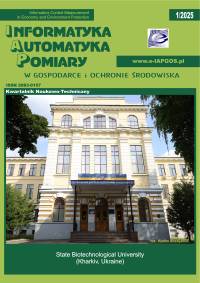WPŁYW DODATKU NANOCZĄSTEK SIO2, TIO2 I AL2O3 NA WYBRANE PARAMETRY MIESZANKI BETONOWEJ I BETONU SAMOZAGĘSZCZAJĄCEGO SIĘ
Paweł Niewiadomski
pawel.niewiadomski@pwr.edu.plWroclaw University of Technology, Faculty of Civil Engineering (Polska)
Abstrakt
W pracy przedstawiono rezultaty własnych badań 10 serii betonu samozagęszczającego się modyfikowanego różną ilością dodatku nanocząstek SiO2, TiO2 i Al2O3. Badaniami objęto cechy reologiczne mieszanek betonowych i cechy mechaniczne stwardniałego betonu w postaci wytrzymałości na ściskanie i zginanie. Uzyskane rezultaty przedstawiono na tle betonu porównawczego, wykonanego bez dodatku nanocząstek.
Słowa kluczowe:
beton samoagęszczający się, modyfikacja, nanocząstki, właściwości fizyczne i mechaniczneBibliografia
Abdoli Yazdi N., Arefi M.R., Mollaahmadi E., Abdollahi Nejand B.: To study the effect of adding Fe2O3 nanoparticles on the morphology properties and microstructure of cement mortar, Life Science Journal, 8(4), 2011, 550–554.
Google Scholar
EFNARC The European Federation of Specialist Construction Chemicals and Concrete Systems, The European Guidlines for Self-Compacting Concrete. Specification, Production and Use., 2005.
Google Scholar
Gaitero J. J., Campillo I., Mondal P., Shah S. P.: Small Changes Can Make a Great Difference, Transportation Research Record, 2141, 2010, 1–5.
Google Scholar
Hui L., Hui-Gang X., Jie Y., Jin-ping O.: Microstructure of cement mortar with nanoparticles, Composites: Part B 35, 2004, 185–189.
Google Scholar
Kurzydłowski K., Lewandowska M.: Engineering nanomaterials (in Polish), Wydawnictwo Naukowe PWN, Warsaw, 2011.
Google Scholar
Mondal P., Shah S. P., Marks L. D., Gaitero J. J.: Comparative Study of the Effects of Microsilica and Nanosilica in Concrete, Transportation Research Record, 2141, 2010, 6–9.
Google Scholar
Nazari A.: Computer-aided prediction of physical properties of high-strength concrete containing Fe2O3 nanoparticles (in Polish), Cement Wapno Beton, 5, 2012, 265–285.
Google Scholar
Nazari A., Khalaj G., Riahi S., Khalaj M. J.: The influence of Al2O3 nanoparticles on the properties of traditional concrete with granulated blastfurnace slag as binder, Cement Wapno Beton, 6, 2011, 311–322.
Google Scholar
Nazari A., Riahi S.: Abrasion resistance of concrete containing SiO2 and Al2O3 nanoparticles in different curing media, Energy and Buildings, 43, 2011, 2939–2946.
Google Scholar
Nazari A., Riahi S.: Effects of CuO nanoparticles on compressive strength of self-compacting concrete, Sadhana, vol. 36, part 3, 2011, 371–391.
Google Scholar
Nazari A., Riahi S.: Effect of TiO2 on properties of self-compacting concrete (in Polish), Cement Wapno Beton, 3, 2011, 167–181.
Google Scholar
Nazari A., Riahi S.: The effects of Cr2O3 nanoparticles on strength assessments and water permeability of concrete in different curing media, Materials Science and Engineering A, 528, 2011, 1173–1182.
Google Scholar
Nazari A., Riahi S.: The Effects of ZnO2 Nanoparticles on Properties of Concrete Using Ground Granulated Blast Furnace Slag as Binder, Materials Research, 14(3), 2011, 299–306.
Google Scholar
Nazari A., Riahi S., Riahi S., Shamekhi S. F., Khademno A.: Influence of Al2O3 nanoparticles on the compressive strength and workability of blended concrete, Journal of American Science, 6(5), 2010, 6–9.
Google Scholar
Shih J.-Y., Chang T.-P., Hsiao T.-C.: Effect of nanosilica on characterization of Portland cement composite, Materials Science and Engineering A, 424, 2006, 266–274.
Google Scholar
Stankiewicz N., Lelusz M.: Nanotechnology in civil engineering – application review (in Polish), Civil and environmental engineering, 5, 2014, 101–112.
Google Scholar
Autorzy
Paweł Niewiadomskipawel.niewiadomski@pwr.edu.pl
Wroclaw University of Technology, Faculty of Civil Engineering Polska
Statystyki
Abstract views: 246PDF downloads: 58
Licencja

Utwór dostępny jest na licencji Creative Commons Uznanie autorstwa – Na tych samych warunkach 4.0 Miedzynarodowe.








